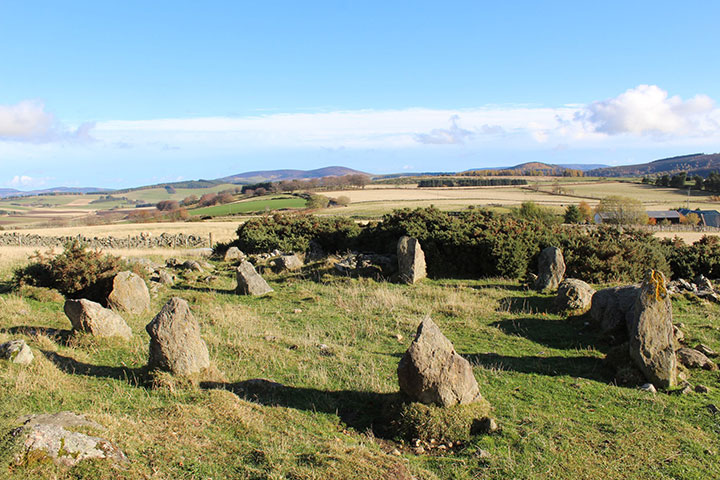An “ancient” stone circle discovered in rural Scotland last year and thought to be thousands of years old was actually built in the 1990s by a local farmer.

Archaeologists in Aberdeenshire were thrilled last year after they discovered what was thought to be another recumbent stone circle, which typically date back to 3,500 to 4,500 years ago and are unique to northern Scotland.
The historical find was first reported in December by a landowner in the parish of Leochel-Cushnie, and crews were dispatched to the area for further research.
“Archaeologists were initially excited about the addition of another recumbent stone circle to the many already identified in Aberdeenshire,” the local government said in a statement. “But during further investigation into the site in the parish of Leochel-Cushnie it transpired that it is a replica only around 20 years old.”

Get breaking National news
READ MORE: Crop circle reveals ancient ‘henge’ monument buried in Ireland
As the British Press Association notes, the circle formation was considered unusual for its small diameter and relatively small stones. Turns out, the former owner of the farmland where the “discovery” was found admitted to building it as a replica in the mid-1990s.
“It is obviously disappointing to learn of this development, but it also adds an interesting element to its story,” Aberdeenshire council member Neil Ackerman said in a statement. “That it so closely copies a regional monument type shows the local knowledge, appreciation and engagement with the archaeology of the region by the local community.”
According to the council, recumbent stone circles have a defining feature, a large horizontal stone (the recumbent) flanked by two upright stones, and they’re usually situated between the southeast to southwest of the circle.
READ MORE: Massive sarcophagus found in Egypt — and archaeologists don’t know what lies inside
The council noted that it’s extremely rare to find undocumented circles in this day and age.
“I hope the stones continue to be used and enjoyed – while not ancient it is still in a fantastic location and makes for a great feature in the landscape,” Ackerman.
In any case, the ‘90s definitely produced some solid rock.








Comments
Want to discuss? Please read our Commenting Policy first.